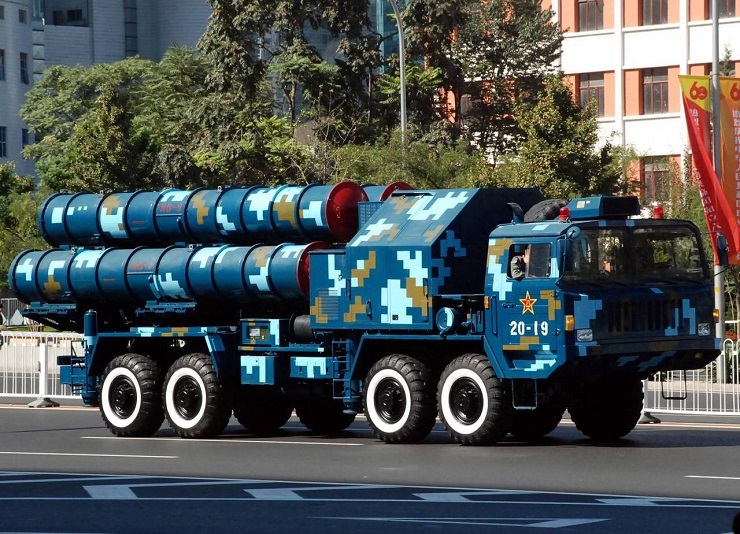While a widely shared expectation was that Joe Biden will bring a positive change to the state of US bi-lateral relations with Russia & China, it has already become evident that the only change that the Biden administration will bring would be a relatively increased focus on the military aspects of bi-lateral tensions. While the military aspect of tensions has never been less important, the US-China ‘trade-war’ is expected to turn into a ‘war of military resources.’ Russia, too, is sensing tensions with the US. The Russian Deputy Foreign Minister Sergei Ryabkov was recently reported to have said that that Moscow expects nothing good in relations with a “deeply hostile” US under the incoming administration of Joe Biden, adding further that “We are heading from bad to worse. The next US president has been left with a bad legacy and it will take a long time for him to sort this out.” At the same, the fact that many of the officials of the Biden administration come with a legacy of Russophobia means that the in-coming administration will find it a lot more difficult to give a positive spin to relations than would have been the case otherwise. Russia is, accordingly, increasingly coordinating its moves with China.
The US, under the Biden administration, is preparing to shift its focus to East and South China Seas. This is being seen as a gateway to re-vitalizing not only US military presence around China, but also its relations with its erstwhile allies, including Japan. Russia and China, sensing increased US military pressure in coming months, have already begun to put their resources together to challenge the US plans.
In this behalf, the joint aerial strategic patrol held by the air forces of Russia and China on December 22 over the Sea of Japan and the East China Sea makes a big statement in the geopolitics of the Asia-Pacific region. China sent four H-6K bombers and Russia sent two Tu-95 bombers. The warplanes formed a formation and patrolled the Sea of Japan and the East China Sea. This is likely to become a routine affair.
Increased Russia-China coordination comes against the immediate context of increasing US military activity in the region. Only in the month of December, the US naval ships made certain moves near the South China Sea. On Dec. 19, USS Mustin conducted a transit through the Taiwan Strait; and on December 22 US Navy Amphibious Ready Group (ARG) consisting of the USS Makin Island and USS Somerset (LPD 25) patrolled the South China Sea and conducted “unscripted” live-fire drills.
Russia-China response to the US moves indicates that both states are not willing to submit to the US notion of unilateral world domination. While the Trump administration notoriously followed “America First” and started a “trade war” with China, the Biden administration’s resolve to end “America First” and re-vitalize the “Asia Pivot” inherently involves military competition and a bid to establish US dominance. This is happening in both South China Sea and in the Black Sea and Baltic region.
In his recent most briefing to foreign military attaches in Moscow, Russia’s chief of General Staff of armed forces, General Valery Gerasimov, said that “The major increase in the number of NATO ships’ visits to the Black Sea, Baltic and Barents seas is alarming. Also, the number of flights by US strategic aircraft has grown.” He also mentioned that “there has been no reactions (from NATO) to this day” to Russian proposals to ease military activity along the line of Russia-NATO engagement on mutual basis.
Gerasimov also noted that:
“There has been a significant increase in the military budgets of NATO countries, further strengthening of their military capabilities. The training activities of the alliance troops are carried out with a pronounced anti-Russian orientation, in which non-block countries are increasingly involved. There has been an increase in provocative activity near the Russian borders. Uncontrolled missile defence capability building continues, which has a significant impact on the balance of power, giving one side an advantage in the use of strategic weapons.”
This shows that the US and the NATO alliance remains largely pre-disposed to confrontation with Russia and this confrontation is likely to become a dominant face of US relations with Russia and China during the Biden era. It was recently confirmed by US Army General Mark Milly in a conversation with the Brookings where he said that the US wants to “stay in great-power competition”, making sure that this competition does not turn nuclear.
For the US, however, the coming together of Russia and China against the US is a formidable challenge, especially because of the fact that the combined military strength of Russia and China will be too strong for the US to match and effectively challenge. In last few years only, China’s Xi Jinping and Russia’s Vladimir Putin have met more than thirty times, resolving almost always to oppose hegemony and unilateralism.
Also, as a recent Pentagon report showed, China’s military modernization is out-numbering the US in a number of crucial military aspects and this pattern is most likely to continue in the coming years, furthering shrinking the available space for the US to materialize its world domination plans.
Salman Rafi Sheikh, research-analyst of International Relations and Pakistan’s foreign and domestic affairs, exclusively for the online magazine “New Eastern Outlook”.

